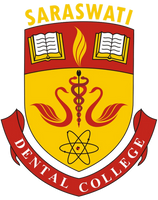
MFs are defined as a large spindle-shaped cell with stress fibres and well-developed fibronexus. They are phenotypically altered fibroblasts which display α- Smooth Muscle Actin (α-SMA) immunohistochemically and smooth muscle myofilaments ultrastructurally. MFs are present in organs with a high remodelling capacity such as kidney, lungs and in oral cavity, periodontal ligament, and gingiva. MFs are essential for the integrity of human body by virtue of its role in physiological tissue repair, but it can also threaten it by its ability to promote tumour development.
MFs are ubiquitous cell that shows functional heterogeneity through various mechanisms. They play a pivotal role in organogenesis and morphogenesis. Several types of odontogenic cysts and tumours have the potential for aggressive behaviour and local recurrence. Electron microscopic studies conducted on odontogenic cysts and tumors have revealed that MFs were particularly more in lesions with locally aggressive behaviour such as Keratocystic odontogenic tumour and Ameloblastoma. Further research and investigations are needed which will help us reveal the role of myofibroblasts in the aggressive behaviour of these oral lesions.


No Any Replies to “Role of Myofibroblasts in Health and Disease”
Leave a Reply